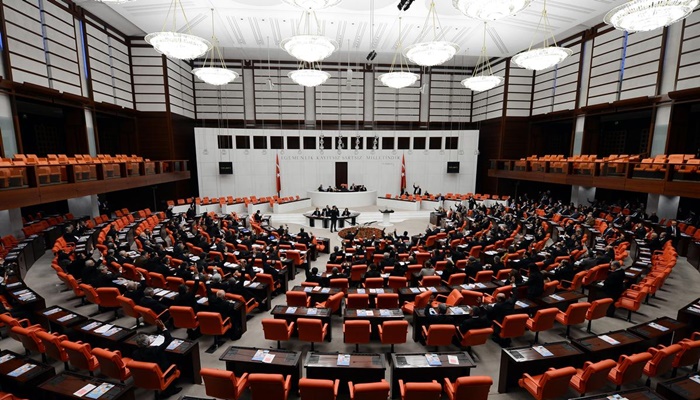The Turkish parliament will soon debate a bill that will remove government expenditures from parliamentary oversight, Turkish media outlets reported on Wednesday.
Parliament’s Planning and Budget Committee approved a bill on Wednesday and submitted it for passage in the general assembly. The proposal amends Law No. 5018 on Public Financial Management and Control.
The bill is controversial because it proposes that parliament not see expenditures for every single item but rather just total expenditures. For example, spending on major construction projects, which have been at the center of criticism by the opposition as the Justice and Development Party (AKP) government has been accused of corruption, will no longer be recorded in the tables and figures submitted to parliament.
As a result the bill is seen by critics as a fatal blow to Turkey‘s already weakened parliamentary system and by the opposition as an attempt to further facilitate corruption in the country.
The bill is likely to pass in the general assembly by a majority vote led by the AKP and its ally, the Nationalist Movement Party (MHP). The two had formed the “People’s Alliance” during the presidential election of 2018, prior to which the parliamentary system of governance was changed to an executive presidential system in an April 2017 referendum, which has given Turkish President Recep Tayyip Erdoğan sweeping powers.
According to an index prepared by Transparency International, Turkey was ranked 91st out of 180 countries in 2019, falling 13 places since 2018. With its performance between 2013-2019, Turkey is also classified under the “worst three countries” on the decline in the list during this period of time. Turkey comes last in the index when compared with European Union members.
Transparency International is an independent global initiative working for ending the injustice of corruption in more than 100 countries. Its “Corruption Perceptions Index” has become the leading global indicator of public sector corruption in the countries.
The AKP faced the most serious claims of corruption in the probes of December 17-25 in 2013 when 89 people were detained. Among those arrested at the time were the children of three AKP ministers, Halkbank former General Director Suleyman Aslan and Iranian businessman Reza Zarrab, a Turkish-Iranian money launderer.
Further, the investigation into the involvement of the ministers was denied in parliament, and they were cleared of all charges. Shortly afterwards, all the judicial cases concerning the suspects were quashed by newly assigned prosecutors, while prosecutors and police officers involved in the investigations were first dismissed and then arrested. Most of them are still behind bars.
At the time, Erdoğan described the investigations as a “coup attempt” by the Gülen movement, a faith-based group inspired by Fethullah Gülen, a Turkish cleric who lives in self-exile in the US. The group was later considered a terrorist organization by Ankara following a coup attempt in July 2016.



